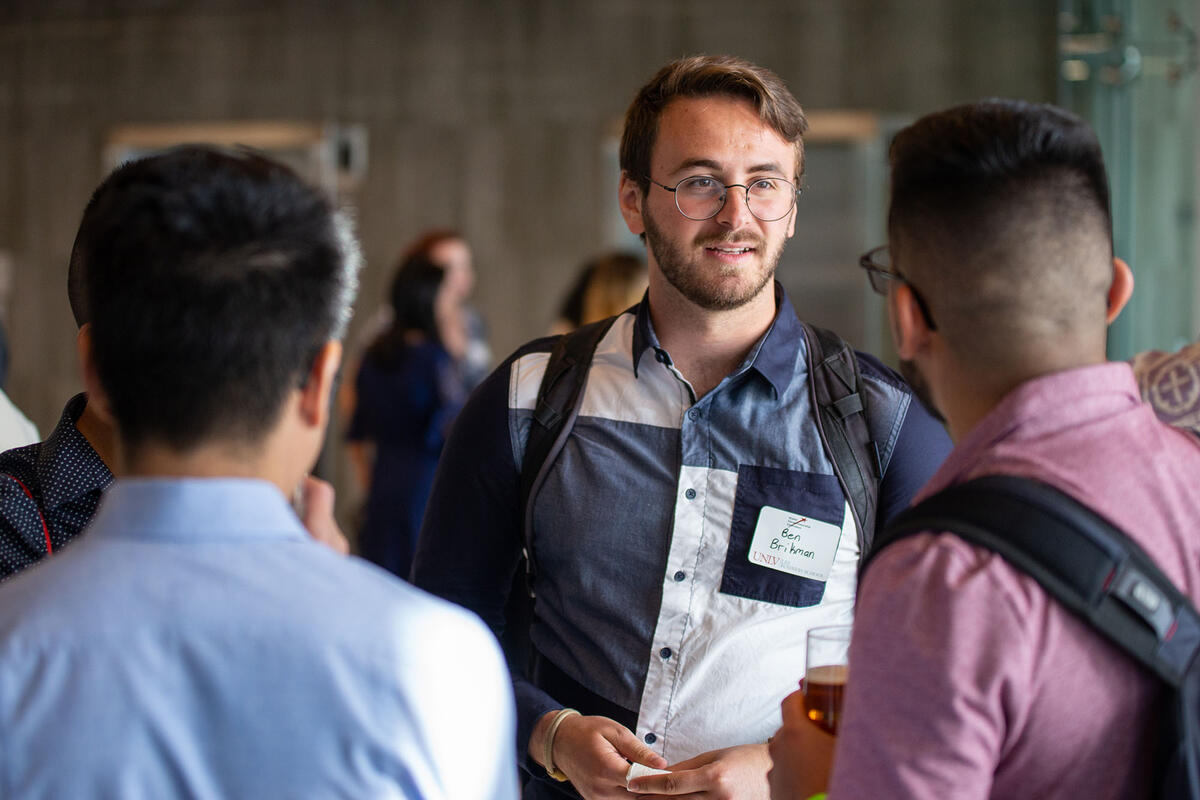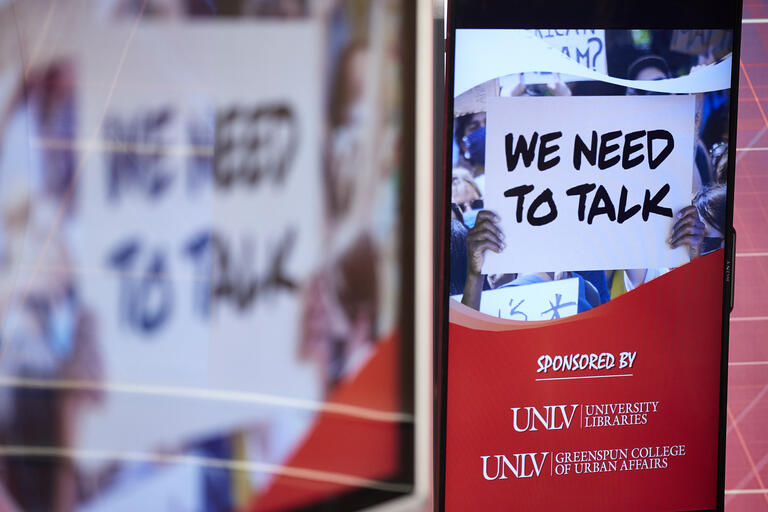Our group chat is more active than usual. My phone keeps buzzing with reminders of a meeting today. As I enter the conference room, my mind races over the tasks we as Rebel Venture Fund (RVF) members should have completed this past week.
Have we reviewed all the companies listed in this week’s dealflow? Did team two contact that entrepreneur for their due diligence process? Are the rooms reserved yet for our networking event?
As soon as I sit down, I realize that today’s meeting is different. New faces line our conference tables. They’re dressed in formal attire, and their manner is professional. Ah, yes. Today’s the day we welcome new RVF members for the fall semester, with six MBA students and 10 undergrads joining the team. Executive Director Matthew Fritz gets straight to introductions.
“Name, major, what you’d like to get out of RVF,” Fritz says aloud as he counts with his fingers to the room, “and an embarrassing story of yourself.” We all begin to chuckle.
After a round of sharing goals and a few humorous stories, the new members loosen up and get accustomed to their new RVF family. Instead of seeing solemn faces and composed postures, I now face a room full of cheery eyes and bright smiles. Yes, we are investors, but we’re also students.
Ben Brikman is a fourth-year UNLV student majoring in economics and minoring in global entrepreneurship. He’s also an intern with the Walmart eCommerce Innovation Team, as well as a student assistant for UNLV’s RebelForge. Ben is a senior associate at RVF, actively participating in the fund’s investment competitions and conferences in Silicon Valley.
I sat down with Ben and asked him about his experiences with RVF, particularly how a college student can make an impact in the Las Vegas startup community.
Explain your position in RVF and the benefits of participating?
I’m an RVF senior associate; that means being a role model for the interns and the associates under us.
RVF is made up of interns, associates, and senior associates. Everyone starts as an intern, who train to become “deal-ready,” meaning that they are able to review and process dealflows for the fund. We then become associates, and when a year passes, we finally become senior associates. There are also directors and committee leaders.
RVF is student-run, and we all work together to put on cooperative events with the community and offer our student members an exciting, entrepreneurial experience. It’s also a great way for students to engage with faculty and take advantage of the resources we have here on campus.
What has the RVF taught you about venture capital and investments?
At first, venture capital to me, in some respects, looked like a very business-centric operation. It seemed like a “spend money to make money” process, where you’re just trying to make a return on investments. But being in RVF helped me realize that companies get much more when they work with us. We take the time to truly understand the entrepreneur’s need and in the process realize that there’s much more to the concept of ‘return on investment’ than just a monetary sense.
With that understanding, we can make a difference in companies that are impacting our community through both economic and social changes. The companies are integrating their business models in ways that are appealing for young people like us. At the same time, we meet and work with an interesting group of entrepreneurs, both young and old. It’s exciting to be investing in companies you wholeheartedly think will make the world better.
How does your experience and work at RVF influence the Las Vegas startup community?
RVF is very involved in local events and with the local startup community. It’s where connections are made. We’ve been to Startup Weekend, to the Venture Capital Investment Competition (VCIC) regional competition, and we’ve been to Angel Syndication Network meetings, all of which serve as good entry points for students and entrepreneurs interested in collaboration.
During VCIC, which was at the time held in Silicon Valley in 2018, we represented an active venture capital firm and over a course of three days, we had to review three companies and finalize which startup we would invest in. Although we didn’t go to the nationals, we won the Entrepreneurs’ Choice Award. We came back home with this award really excited, as it signified that all three of those companies would have chosen to work with us.
Based on your experience, how is RVF different than other student-led venture capital funds?
In my opinion, RVF is a good mix of serious and fun. First and foremost, we operate as an educational experience for students, and also as an operating venture capital fund for entrepreneurs.
Beyond the work that we’re obligated to do, we have fun. We are a close-knit group and we care about each other. When we go to these conferences, we want to learn. We try our best and the directors understand that we are not out there to beat the other firms, but to learn and grow and become a better fund.
What's unique about the concept of culture of RVF?
RVF is run with faculty and community leaders, such as Zach Miles (associate vice president for economic development), Janet Runge (professor and director of the Global Entrepreneurship Experience Program), and some angel investors in the community. They all serve as a great resource for students – creating a culture of collaboration and of opportunity for students. They also regularly introduce the RVF to local entrepreneurs, and investors. Without the contributions of the faculty, the students, and the local entrepreneurs, I don’t think RVF would be as successful as it is today.
How has the RVF contributed to your career prospects?
Through the RVF, we learn how to ask questions of entrepreneurs, which has made me more skeptical, more curious, and more knowledgeable. RVF has helped me to be more analytical when looking at companies, which is very important.
My experience with RVF is often the highlight of my professional interviews. I think RVF gave me leverage in getting the jobs I have today.
Have you ever felt impostor syndrome at RVF? What’s your advice for students who may feel that way?
I never felt out of place as a member of the RVF. As in anything new, I did feel at one point that I was behind, but I never felt that I shouldn’t be there. When joining RVF, I wanted to know if I was ready to take on everything. I had an understanding that they were all in my shoes at one point.
My advice to students is to understand that everyone has been where you are; nobody just initially knows. Eventually you’ll learn how to talk business - learn how to talk about patents, learn how to think about finances for a startup company. It’s not something that comes naturally, you have to put work into it. So when you begin, just acknowledge that everyone starts somewhere.
We all learn from each other. It’s all under an umbrella - whether you’re an entrepreneurship student, a part of RVF, a faculty member with a background of entrepreneurship, or just in the community, we’re all one community of entrepreneurs of Las Vegas.



